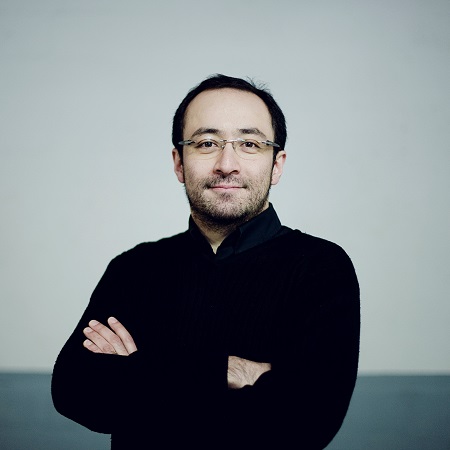 Switzerland Haydn, The Creation: Rebecca Bottone (soprano), Mauro Peter (tenor), Morgan Pearse (baritone), Orchestra La Scintilla / Riccardo Minasi (conductor). Zurich Opera House, 22.12.2019. (JR)
Switzerland Haydn, The Creation: Rebecca Bottone (soprano), Mauro Peter (tenor), Morgan Pearse (baritone), Orchestra La Scintilla / Riccardo Minasi (conductor). Zurich Opera House, 22.12.2019. (JR)

Zurich Opera House took a mere 15 months to build, the Elbphilharmonie in Hamburg a staggering ten years – but God only needed a presumably rather busy six days to create Heaven and Earth – switch on the lights, sort out some chaos, arrange the stars, cover the surface with animals and, finally, put a couple of humans into an early Paradise Garden.
I do not need to tell anyone the more detailed story of The Creation but the creation of the work itself bears a few lines. Haydn’s patron Count Esterházy dies in 1790, leaving a mountain of debts and an unmusical son. The son disbands the orchestra and sends 60-year old Haydn packing. Luckily he receives an offer to visit England. Mozart warns him that his German (and lack of English) will not serve him well in England but Haydn retorts that his musical language will serve him well. He is received like a popstar. He hears The Messiah and Israel in Egypt at the annual Handel Festival in Westminster Abbey; and the idea of writing an oratorio is conceived. But what to write to about: a friend hands him a Bible and recommends: ‘start at the beginning’.
I must turn to the performance: first, the chorus. La Cetra Vokalensemble will probably not be a name known to you. They were founded in 2012 and consist of graduates of the Schola Cantorum Basiliensis (The College of Singing in Basle). They number 30 singers, spread equally through the voices, and all are young. They were led for this performance by Colombian Carlos Federico Sepúlveda, who sings with the bass section. They made an excellent impression.
Riccardo Minasi, the conductor, is a veritable ball of energy. Born in Rome, he is currently Principal Conductor of the Mozarteum-Orchestra Salzburg. He is a welcome and highly regarded regular in Zurich. His command of the orchestra and chorus was nothing short of exceptional. His crisp direction was exemplary. We knew from the first note that he meant business.
Of the three soloists, the two men were particularly fine. English soprano Rebecca Bottone sang and smiled sweetly but her voice can tend to the rather squeaky; I would have liked more warmth at times. Intonation was however spot on, technical hurdles surmounted with ease; her German diction was not always too clear, especially in the recitatives. Mauro Peter, born in Lucerne, is the local boy who can do no wrong in the eyes and ears of the locals. Luckily, he does not have many high notes in this work to test his top; he sang lustily, always with a cheeky glint in his eye. Austrian baritone Morgan Pearse was a discovery, a stentorian delivery and fine, commanding stage presence. He relished his many vocal embellishments. Both men had fun telling the story.
Which leaves the orchestra: specialists in the baroque, La Scintilla were on their usual fine form. Ably led by American Ada Pesch, with fine contributions from another cornerstone of the orchestra, Claudius Herrmann, principal cello, and tinkly cembalo from Enrico Maria Cacciari.
The orchestra was raised out of the opera house pit to front stage, a few rows of the stalls had to be sacrificed to bring them forward into the auditorium. That meant the choir could come further forward from the rear of the stage. However, the acoustics of an opera house are not designed for a large-scale choral work and this brought problems both of balance and volume. The orchestra was full frontal to the audience, at least in the stalls, and the relatively small choir was either indistinct or too loud. The choir should be raised higher so they can be heard over the orchestra and be more visible: much of their hard work was lost in the wings. The choir resorted to singing forte for most of the time and some impact was lost. Intonation and diction were no problem and I spotted no weak links.
The house was quite full, many a middle-aged dutiful son taking out their elderly mothers just before Christmas for a musical treat. And a musical treat it was.
John Rhodes